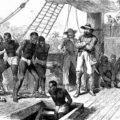The title “The Narrative of the Life of Frederick Douglass, an American Slave” is a fitting and appropriate title for the book. The title accurately describes the content of the book, as it is an autobiographical account of Frederick Douglass’s life, from his time as a slave in Maryland to his eventual escape to freedom in the North. The use of the word “narrative” suggests that the book is not just a straightforward memoir, but a carefully crafted story with a clear beginning, middle, and end.
Additionally, the title highlights the significance of Frederick Douglass’s life as a former slave and his contribution to the abolitionist movement. The word “slave” in the title emphasizes the central theme of the book, which is the harsh realities of slavery and its effects on individuals and society. By calling it “The Narrative of the Life of Frederick Douglass,” the title emphasizes the personal and human elements of Douglass’s story, which adds to the emotional impact of the book.
However, one potential argument against the suitability of the title is that it may not fully capture the complexity and depth of the book’s content. Although the book is indeed a narrative of Douglass’s life, it also serves as a powerful political statement against slavery and racism in the United States. The title may not fully convey this broader purpose of the book, which may be important for readers to understand.
In conclusion, while there may be some minor drawbacks to the title “The Narrative of the Life of Frederick Douglass, an American Slave,” it remains an effective and suitable title for the book. It accurately reflects the content of the book, emphasizes the personal and emotional elements of Douglass’s story, and highlights the importance of his life and work as an abolitionist and social reformer.




Latest Comments